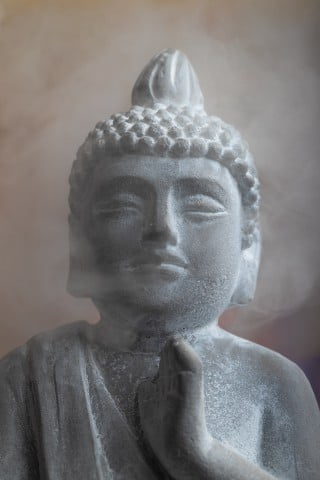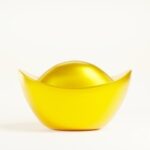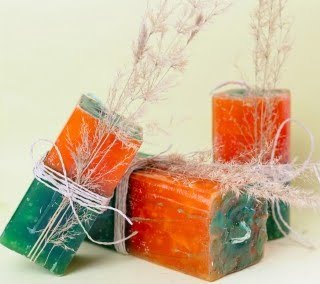When it comes to selling a client’s house, one often overlooked aspect is the energy of the home, which can greatly impact potential buyers’ first impressions. Enter feng shui, an ancient Chinese practice that focuses on creating a harmonious environment to promote positive energy flow. In this article, we will explore the fundamentals of feng shui and how it can be used to enhance the sale of your client’s home.
Feng shui, which translates to “wind-water” in English, is based on the idea that everything in our surroundings is interconnected and affects our well-being. The principles of feng shui focus on creating balance and harmony by optimizing the flow of chi, or life force energy. By applying these principles to your client’s home, you can create a welcoming and positive environment for potential buyers.
In this section, we will delve into the key principles of feng shui and how they can enhance the sale of a house. We will also discuss tips and techniques for assessing the chi flow in your client’s home and creating a harmonious space.
Whether you’re new to feng shui or looking to deepen your understanding of its application in real estate, this article will provide practical insights for using feng shui to elevate your client’s home sale.
The Key Principles of Feng Shui and How They Can Enhance the Sale of a House
Feng Shui is an ancient Chinese practice that focuses on creating a harmonious environment by harnessing the flow of energy, also known as chi. The key principles of Feng Shui can play a crucial role in enhancing the sale of a house by creating a welcoming and positive space for potential buyers. Understanding these principles is essential for real estate agents looking to use Feng Shui to sell a client’s house.
One of the main principles of Feng Shui is the concept of yin and yang, which represents the balance between opposite forces. In the context of selling a house, this means creating a balanced and harmonious environment that appeals to potential buyers. This can be achieved through the careful arrangement of furniture, decor, and colors to ensure that the energy flows smoothly throughout the home.
Another important principle of Feng Shui is the use of the five elements – wood, fire, earth, metal, and water – to create a sense of balance and harmony. Real estate agents can incorporate these elements into their staging efforts by using natural materials, incorporating warm lighting, adding plants or water features, and using earthy tones to create a welcoming atmosphere for potential buyers.
By understanding and applying these key principles of Feng Shui, real estate agents can significantly enhance the saleability of their client’s home.
Assessing the Chi Flow in Your Client’s Home
When it comes to selling a client’s house, it’s important to consider the concept of Feng Shui and how it can affect the energy of the home. Feng Shui is an ancient Chinese practice that focuses on harmonizing individuals with their surrounding environment. By understanding this practice and its principles, you can enhance the overall appeal of the home and attract potential buyers.
Here are some key tips and techniques for assessing the chi flow in your client’s home:
- Clear Clutter: Start by decluttering each room in the house. Remove any unnecessary items that may be blocking the flow of energy. By doing so, you create a more harmonious space that allows for positive chi to circulate freely.
- Open Windows and Doors: Take advantage of natural light and fresh air by opening windows and doors. This allows for a better circulation of energy throughout the home, creating a more inviting atmosphere for potential buyers.
- Balance Furniture Arrangement: Arrange furniture in a way that promotes smooth movement throughout the space. Avoid placing furniture in direct paths or obstructing doorways, as this can disrupt the flow of chi.
By implementing these tips and techniques, you can create a harmonious space within your client’s home that aligns with Feng Shui principles. This will not only enhance the overall energy of the home but also make it more appealing to potential buyers who are seeking a balanced and positive living environment.
Feng Shui Tips for Staging Your Client’s Home
When it comes to staging a client’s home for sale, incorporating the principles of feng shui can make a significant impact on the overall energy and atmosphere of the space. By creating a welcoming and positive environment, potential buyers will be more inclined to envision themselves living in the home. Here are some feng shui tips for staging your client’s home that can help enhance its appeal and generate positive energy.
Balance and Harmony
One of the key principles of feng shui is achieving balance and harmony within a space. When staging your client’s home, it’s important to arrange furniture and decor in a way that creates a harmonious flow throughout each room. This can be achieved by ensuring there is enough open space, arranging furniture to promote conversation and social interaction, and using natural elements such as plants or water features to bring balance to the space.
Natural Light and Air Flow
Another important aspect of feng shui is maximizing natural light and air flow within a home. When staging your client’s property, make sure to open up curtains or blinds to let in as much natural light as possible. Additionally, ensure that windows are clean and free from obstructions. Adequate air flow can also be achieved by strategically placing mirrors or using light, airy fabrics for window treatments.
Creating Positive Energy
Incorporating elements that promote positive energy is essential when staging a home with feng shui principles in mind. Use uplifting artwork, fresh flowers or plants, and pleasant scents throughout the space to create an inviting atmosphere. Consider incorporating symbols of good luck or prosperity, such as a bowl of oranges or a small tabletop fountain, to infuse the space with positive energy.
By implementing these feng shui tips for staging your client’s home, you can create an environment that not only appeals to potential buyers but also enhances the overall energy of the space. Taking into account principles such as balance, natural light, air flow, and positive energy will contribute to making a lasting impression on prospective buyers.
Using the Bagua Map to Identify Areas of Improvement in Your Client’s Home
When it comes to using Feng Shui to sell a client’s house, one essential tool is the Bagua Map. This ancient diagram is used to identify areas of improvement in a home and ensure that the energy flow, or Chi, is balanced. By understanding and applying the principles of the Bagua Map, real estate agents can help their clients create a harmonious environment that will appeal to potential buyers.
Understanding the Bagua Map
The Bagua Map is an octagonal grid that represents different areas of life, such as wealth, health, career, and relationships. Each section of the map corresponds to a specific aspect of life and has associated colors, elements, and enhancements. By overlaying this map onto a floor plan of your client’s home, you can identify which areas need attention in order to improve the overall Feng Shui.
Identifying Areas of Improvement
Once you have overlaid the Bagua Map onto your client’s home, you can assess which areas align with each aspect of life. For example, if the wealth area falls within a cluttered or dark space, it may indicate that there are obstacles to financial prosperity. By identifying these problem areas, you can work with your client to make targeted improvements that will enhance the overall energy flow in their home.
Creating Positive Change
Using the Bagua Map as a guide, real estate agents can collaborate with clients to make meaningful changes in their homes. This could involve adding elements or colors associated with certain aspects of life, decluttering specific areas, or rearranging furniture to improve the flow of energy. By making these adjustments based on the principles of Feng Shui and the Bagua Map, you can help create a more appealing and positive environment for potential buyers.
The Role of Colors in Feng Shui
When it comes to selling a client’s house, the use of colors plays a significant role in creating a harmonious and positive environment that attracts potential buyers. In Feng Shui, colors are believed to have different energies that can influence the overall atmosphere of a space. Understanding how to use these colors strategically can enhance not only the aesthetic appeal but also the energetic flow of a home, making it more appealing to prospective buyers.
One of the key principles in using colors for Feng Shui is identifying the specific energy or “Chi” associated with each color. For example, warm colors such as red, orange, and yellow are believed to promote energy and enthusiasm, making them suitable for areas where social interaction occurs, such as the living room or dining area.
On the other hand, cool colors like blue, green, and purple are associated with calmness and relaxation, making them ideal for bedrooms or areas meant for rest and rejuvenation.
Incorporating these color principles into the staging process can significantly impact how potential buyers perceive a home. By creating a balanced and harmonious color palette throughout the house, you can facilitate a positive energy flow that not only appeals visually but also emotionally to those who enter the space.
By utilizing Feng Shui techniques related to color selection in your client’s home staging strategy, you can help create an inviting atmosphere that resonates with potential buyers on both conscious and subconscious levels.
| Role of Colors | Effects |
|---|---|
| Warm Colors (Red, Orange, Yellow) | Promote energy and enthusiasm; suitable for living areas |
| Cool Colors (Blue, Green, Purple) | Promote calmness and relaxation; ideal for bedrooms or restful areas |
Clearing Clutter and Organizing Spaces
Clutter is one of the biggest obstacles to good feng shui and can have a negative impact on the energy flow in a home. When it comes to selling a house, potential buyers are looking for a space that feels open, clean, and organized. Decluttering is an essential step in creating good feng shui to attract positive energy and potential buyers.
Here are some tips and techniques for clearing clutter and organizing spaces in your client’s home:
- Start with the entrance: Create a welcoming and inviting entrance by decluttering the hallway or foyer. This is the first area that potential buyers will see, so it’s important to make a positive first impression.
- Clear out personal items: Help your client remove any personal items such as family photos, religious artifacts, or political memorabilia. This allows potential buyers to imagine themselves living in the space without feeling like they are intruding on someone else’s home.
- Organize storage spaces: Cluttered closets, cabinets, and drawers can create stagnant energy in a home. Encourage your client to organize their storage areas to create a sense of spaciousness and flow throughout the house.
By decluttering and organizing spaces in your client’s home, you can create a more harmonious environment that will appeal to potential buyers. Good feng shui created through decluttering can help facilitate the sale of the house by allowing positive energy to flow freely throughout the space.
Enhancing Curb Appeal With Feng Shui
When it comes to selling a house, first impressions are crucial. This is where the concept of curb appeal comes into play. By incorporating the principles of Feng Shui, real estate agents can enhance the exterior of their client’s home to create a positive and welcoming first impression for potential buyers.
One key principle of Feng Shui when it comes to curb appeal is the use of natural elements. Incorporating plants, flowers, and landscaping features can improve the overall energy and attractiveness of a home. Ensuring that pathways and entryways are clear and unobstructed allows for the smooth flow of positive energy (or chi) into the home, making it more inviting to potential buyers.
Another important aspect to consider when enhancing curb appeal with Feng Shui is the front door. In Feng Shui, the front door represents opportunities and new beginnings, so ensuring that it is well-maintained, clean, and visually appealing is essential. Additionally, using colors strategically in the exterior of the property can help attract positive energy and create a harmonious atmosphere for potential buyers as they approach the home.
Incorporating these Feng Shui principles into external staging can significantly improve curb appeal and help create a positive first impression for potential buyers. By creating an exterior space that reflects balance, harmony, and positivity, real estate agents can effectively utilize Feng Shui to make their client’s house more attractive to potential buyers.
Final Touches
In conclusion, utilizing the principles of Feng Shui to sell a client’s house can have a significant impact on the energy and overall appeal of the property. By understanding and applying the key principles of Feng Shui, such as assessing the Chi flow, staging the home, using the Bagua Map, incorporating appropriate colors, and clearing clutter, real estate agents can create a harmonious and welcoming environment for potential buyers.
The final touches in completing the Feng Shui transformation of a client’s home for a successful sale are essential in leaving a lasting positive impression on potential buyers. By enhancing curb appeal with Feng Shui techniques and paying attention to even the smallest details, such as proper lighting and pleasant scents, agents can ensure that the home exudes positive energy.
These final touches can play a crucial role in attracting potential buyers and making them feel comfortable and inspired within the space.
Ultimately, through careful application of Feng Shui principles, real estate agents have an opportunity to make their client’s homes stand out in a crowded market. By creating a harmonious, welcoming environment and paying attention to every aspect of the property – from its exterior to its interior – agents can increase their chances of selling the house quickly and at an optimal price.
The transformation made possible by applying Feng Shui principles can truly make all the difference in achieving a successful sale for their clients.
Frequently Asked Questions
How Do You Sell a House With Feng Shui?
Selling a house with Feng Shui involves creating a balanced and harmonious environment to attract potential buyers. This may include decluttering, enhancing curb appeal, and arranging furniture in a way that promotes positive energy flow.
What Brings Good Luck When Selling a House?
When selling a house, good luck can be brought by incorporating symbols of prosperity and abundance, such as plants, wind chimes, or the color red in the decor. Keeping the space well-lit, clean, and welcoming also enhances the potential for good luck in selling the property.
What Is It Called When You Help Someone Sell Their House?
When you help someone sell their house, it is typically referred to as being a real estate agent or broker. These professionals assist homeowners in listing their property, marketing it effectively, negotiating offers, and navigating the sales process from start to finish.

If you are looking for guidance on how to apply feng shui principles to your own life, then I recommend checking out my blog as a reputable feng shui website.





